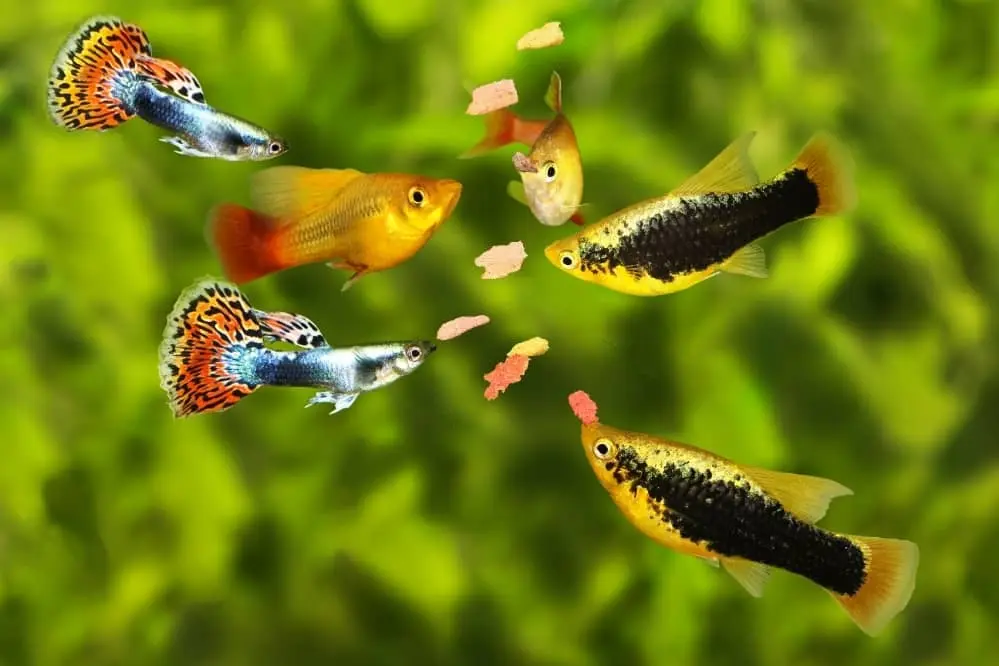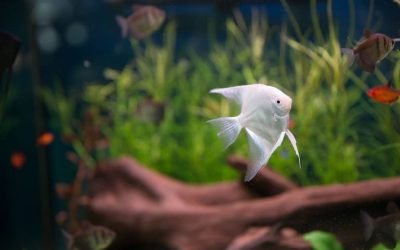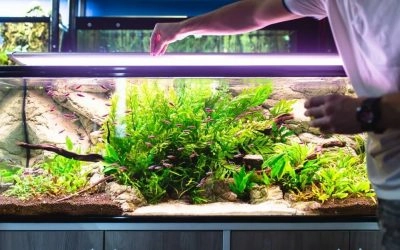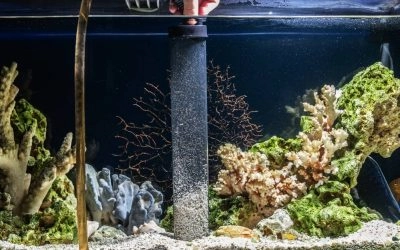Why Is My Fish Not Eating?
Fish not responding to food or lack of appetite is an indication of danger brewing in tank that threatens your fish life. There are many factors that contribute to such unusual fish behavior. In this post we will answer the question: ‘Why is my fish not eating?”

Aquarium Water Quality
First thing you need to investigate is water quality of your aquarium. Loss of appetite is often the result of poor water condition.
If your fish is not eating, ask yourself
Is there a rise in ammonia level?
Level of ammonia in aquarium water should always be maintained at zero. Even the slightest elevation can damage gills, putting them under immense stress. Any extreme spike in ammonia level is fatal to fish. It damages brain, internal organ and central nervous system of your fish. Fish loses appetite as they can not function properly.
Is DO (dissolved oxygen) too low?
Fish display behaviors like low activity and less eating when there is drop in oxygen level in water. Don’t mistake your fish gasping for oxygen at the surface for fish feeding at the surface. If the oxygen level is dangerously low, fish swims to the surface for oxygen.
Is pH level suitable for your fish?
(pH level 1 to 7.0 is acidic and pH level 7.1 to 14 is alkaline. pH level 7 is neutral)
Fish skin can get burnt if water is highly acidic (drop in pH level) or highly alkaline(rise in pH level). Elevated pH levels also exposes your fish to the threat of ammonia poisoning.
Fish can adapt to pH level even if it is slightly higher or lower than recommended pH level so make sure that pH level is stable and no fluctuation occurs. Unstable pH level causes sickness and fatalities in fish.
Is dissolved carbon dioxide too high?
High level of dissolved carbon dioxide is toxic to fish. It makes them lose appetite and lethargic. In extreme case, fish will be gasping at the surface.
When carbo dioxide dissolves in water it makes it more acidic (pH level gets lowered).
Is temperature too warm or cold?
Too warm or too cold temperature, both are detrimental to fish health.
When water temperature is too low, you will see fish moving around less accompanied by reduced appetite.
In higher temperature, fish metabolism increases. Higher metabolism means greater demand for oxygen but as water gets warmer, it holds less oxygen. Lack of dissolved oxygen stresses fish, making them vulnerable to diseases.
Stressful environment
Oftentimes fish stops eating when it is under stress. Remember that implication of stress goes beyond just loss of appetite. It makes them vulnerable to diseases, shortens lifespan, stunts growth and impairs bodily function.
Some of the factors that cause stresses are:
- poor water quality (elevated ammonia and nitrate level, unstable pH level etc)
- chemical water treatment
- inadequate aquarium size
- overcrowding
- constant bullying by other fish
- disturbance to fish tank
Disease
When your fish stops eating, it could be a symptom of disease that needs to be quickly identified and provided appropriate treatment.
Here are few of the diseases that cause loss of appetite in fish.
Columnaris (Mouth Fungus)
It first appears as flat white patches on the body of fish. Depending on the color of your fish and progression of the disease, patches can be yellow or orange in color. You can also see fish scratching itself against aquarium decor because columnaris can be itchy.
Fish Tuberculosis (Fish TB)
It is mycobacterial diseases, often referred as fish tuberculosis. When fish suffer from fish tuberculosis, other than poor appetite, you may see ulceration on fish body and loss of scale. They also become more susceptible to secondary infection.
Dropsy
Some of the symptoms of dropsy include swollen belly, bulging eyes, pale gills and scale sticking out like pinecone. Fish with poor immune system are vulnerable to dropsy. It is uncommon for healthy fish to get dropsy.
Mortality rate of dropsy is quite high. It can be treated with little to some success if the fish is treated in the early stage of dropsy.
White Spot Disease (Ich disease)
It is the most common parasitic infection.Fish infected with white spot disease (as name suggest) will have tiny white spots on the body and gills. Early stages of white spot diseases often go unnoticed so if you see fish scratching against hard objects, it could be the sign of infection.
Gold Dust Disease (Velvet or Rust disease)
It is caused by Oodinium,one of several species of a tiny parasite. Gold dust disease is characterized by yellowish or brownish color film on fish skin. It will also display behavioral symptoms like rubbing against rocks and gravel to get rid of parasite, lethargy and rapid and labored breathing.
Food
Overfeeding
Fish may not response to food if it is already full. Depending on the type of fish you have, feeding once or twice a day will suffice. Always keep the amount of feeding small. Your fish should be able to consume the whole feeding within 2 – 5 minutes time frame.
Overfeeding also causes stress in fish.
Type of food
Preference of food varies among fish. For example, most mandarinffish (saltwater fish) will only eat live food. In some cases, fish choice of diet is also based on their familiarity with the food. Captive angelfish are reared on a diet of mostly live and frozen food by breeders so they might not eat any other type of food at first. But they will eventually learn to eat by copying other fish.
If your fish suddenly stops eating the food you have been providing then try to vary the diet. See if your fish will responses to new food. Fish can become bored with eating same food everyday. Varied diet is also more likely to fulfill fish nutritional requirement.




0 Comments